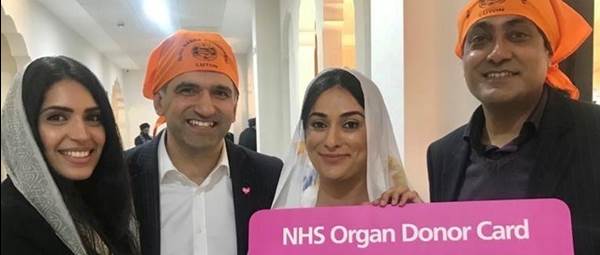Blood donation projects
Key information for projects focusing on blood donation.
On this page:
- The need for blood donation projects
- Areas of focus for blood donation projects
- Applying for funding
- Further questions
See examples of projects that have previously been funded by the Community Grants Programme.
The need for blood donation projects
Due to clinical need, any activity focusing on blood donation must engage Black African and/or Black Caribbean communities. Activity must focus on driving registrations and not facilitating group or mobile blood donation sessions.

New figures reveal a record 250 donations are now needed every day to treat sickle cell, the fastest growing genetic condition in the UK.
The figure shows a huge increase in demand from hospitals to treat patients. Only 150 donations a day were needed six years ago.
The rising demand is driven by increasing patient numbers, as people live for longer, and greater use of complete blood transfusions – known as red cell exchanges – which improve patient outcomes.
Demand for blood to treat sickle cell has risen dramatically in recent years, increasing by over 50% from 2017 to 2022, and is projected to continue to rise.
Currently, NHS Blood and Transplant (NHSBT) is only able to provide matched blood for just over half of the hospital requests – other patients need to be treated with O Negative, the universal blood type.
Being treated with O Negative rather than the correct blood type is clinically safe but could mean, long term, patients are more likely to develop antibodies. This puts them at risk of complications and makes it even harder to find blood they can receive.
We are particularly keen to work with trusted voices and messengers who can help us address barriers, normalise blood donation and drive behaviour change within Black African and Black Caribbean communities, with a primary focus to increase Black donor registrations.
Projects support us by becoming part of our strategic approach to community engagement, mapping and identifying opportunities and using real life stories to show the impact Black blood donors can have.
Further questions
If you have any further questions about the programme or previous projects we have funded, please contact community.funding@nhsbt.nhs.uk and we will respond as soon as we can.
